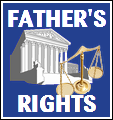 The Jurisdictional Hearing
The Jurisdictional Hearing
The second trial you are entitled to if your children are seized by Child Protective Services is called a jurisdictional hearing. This gives you a second opportunity to have your children returned to you. If you are innocent of the allegations against you, do not make a deal. Litigate the hearing. If you are successful at the jurisdictional hearing, your children will be returned to you and this ordeal with Child Protective Services will be over. Child Protective Services, even if you are successful at the jurisdictional hearing, may suggest follow up treatments and benefits such as medicaid and food stamps. Do not work with Child Protective Services regarding these matters. Keep them out of your life!
If you are not successful at the jurisdictional trial, a case plan will be presented and you will have to cooperate with it. This means you are in for a long drawn out situation dealing with the Family Court, Child Protective Services and the caseworkers before you will be able to get your children back. Try to finalize the case plan in six months if possible. Do whatever they ask you to do to convince them to give your children back to you. They may want you to take parenting classes, attend therapy, and take other action to convince them and the court to return your children. Do whatever is necessary to comply with their wishes to get your children back.
Unfortunately, if there is a case hearing after 6 months and your children are not returned to you, you need to work on a second 6 month case plan. At the end of the second case plan you can have another hearing to get your children returned to you.
Hearing on the Termination of Parental Rights
The third trial you can have after your children are seized by Child Protective Services is the termination of parental rights hearing. Unfortunately by the time this hearing takes place, your children will have been away from you for close to a year and a half. Take the case to trial at this point again. If you lose the termination of parental rights hearing, you lose your rights to your children. This is your last chance. Should you lose this trial the only thing you can do is to bring an appeal to the Appellate Division. Appeals are costly and can take as long as a year to 18 months to get a decision. It is also difficult to be successful on appeals from termination of parental rights hearings.


 If marriages are supposed to be entered into based on true love then what place does a
If marriages are supposed to be entered into based on true love then what place does a  Sometimes prenuptial agreements are designed to deal with financial arrangements between the parties during the course of their marriage. Prenuptial agreements can set aside property as separate property which is not to be included in either the marital estate upon death of one of the parties to the marriage or in a divorce proceeding. Prenuptial agreements can also deal with issues of spousal maintenance (alimony) should the parties get divorced.
Sometimes prenuptial agreements are designed to deal with financial arrangements between the parties during the course of their marriage. Prenuptial agreements can set aside property as separate property which is not to be included in either the marital estate upon death of one of the parties to the marriage or in a divorce proceeding. Prenuptial agreements can also deal with issues of spousal maintenance (alimony) should the parties get divorced.
 Honesty is the best policy. If a judge finds that you are being less than honest during
Honesty is the best policy. If a judge finds that you are being less than honest during 
 Elliot S. Schlissel is a
Elliot S. Schlissel is a 












